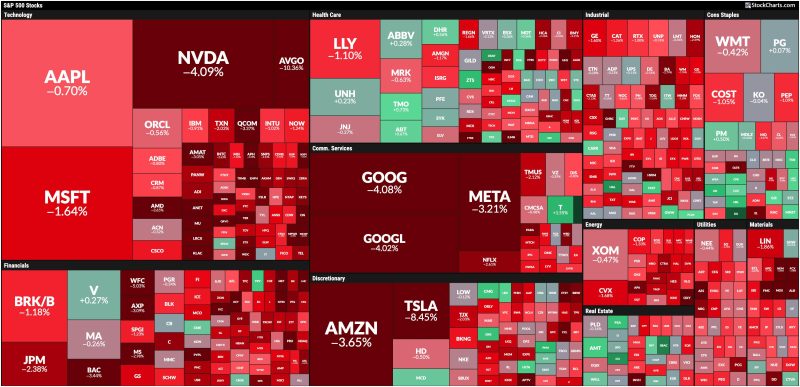In response to the recent broad-based stock market selloff, many investors are left wondering how to position their portfolios effectively. During times of market turbulence and uncertainty, it is crucial to reevaluate your investment strategy and make well-informed decisions to protect and potentially grow your wealth. In this guide, we will explore some key strategies and approaches to help you navigate a market downturn and position your portfolio for long-term success.
Diversification is one of the fundamental principles of investing that can help mitigate risk during a stock market selloff. By spreading your investments across different asset classes, industries, and geographies, you can reduce the impact of volatility in any one area on your overall portfolio. Consider adding assets with low correlation to equities, such as bonds, real estate, and commodities, to further diversify your holdings.
Maintaining a long-term perspective is essential when facing a market selloff. Rather than making panicked decisions based on short-term fluctuations, focus on your investment goals and stay committed to your long-term strategy. History has shown that markets have a tendency to recover over time, and staying invested through downturns can be beneficial in capturing potential upside when market conditions improve.
In times of market uncertainty, it may be prudent to review your portfolio allocation and consider rebalancing if necessary. Rebalancing involves adjusting your holdings to bring them back in line with your target asset allocation. This can help you take advantage of buying opportunities in undervalued assets and ensure that your portfolio remains aligned with your risk tolerance and investment objectives.
Another strategy to consider during a stock market selloff is to assess the quality of your individual holdings. Focus on companies with strong fundamentals, resilient business models, and healthy balance sheets that can weather economic downturns. Avoid making emotional investment decisions based on fear or hype, and instead, conduct thorough research and analysis to identify high-quality investment opportunities.
Finally, during turbulent market conditions, it is crucial to remain vigilant and stay informed about the latest developments in the economy and financial markets. Keep abreast of market news, economic indicators, and geopolitical events that could impact your investments. Consider seeking advice from financial professionals or using reputable research sources to help guide your decision-making process.
In conclusion, a broad-based stock market selloff can be a challenging time for investors, but with the right strategies and approach, it is possible to position your portfolio for long-term success. By diversifying your holdings, maintaining a long-term perspective, rebalancing your portfolio, focusing on quality investments, and staying informed, you can navigate market downturns with confidence and potentially emerge stronger in the end.




























